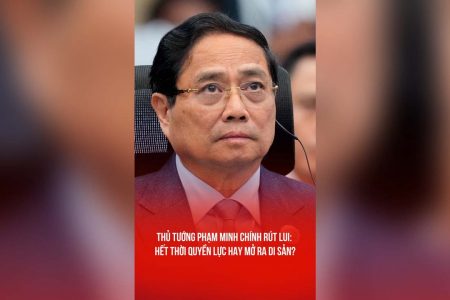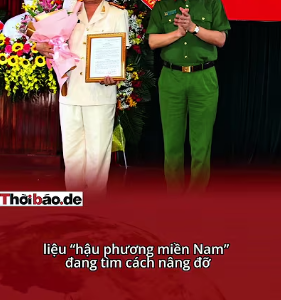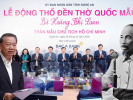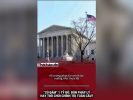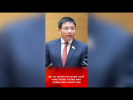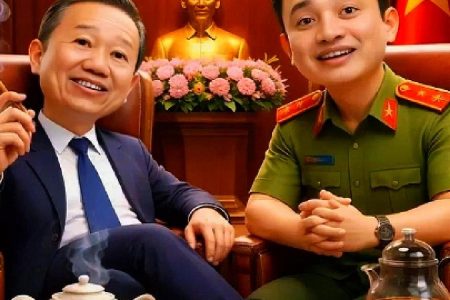
Who will succeed Mr. Vuong Dinh Hue, the incumnent Secretary of the Hanoi Party Committee, when Mr. Hue has been introduced to become the National Assembly (NA)’s chairman? The answer is “secret” and the Party has a plan!
Cadres work is the Party’s own, but people have the right to care because bad or good leaders affect people’s lives, but they are out of the way. „Reorganizing the party“ creates the “authoritarian trend” that makes the “power game” become fierce. Reform breakthroughs from the state need to create ‚game rules with the real political participation of the people.
To succeed
The most powerful leaders at the provincial level are the secretaries of the provinces’ Party Committees, especially in the three major cities in the centers of the North, Central, and South such as Hanoi Capital, Ho Chi Minh City and Danang. During the 12th term (2016-2021), in all three cities above, the secretaries of the Party were forced to replace in the middle term due to „violation of party discipline“ with different degrees. Mr. Dinh La Thang – Ho Chi Minh City Secretary was replaced in May 2017, then examined for penal liability; Mr. Nguyen Xuan Anh – Secretary of Danang was dismissed in October 2017, previously warned and; Mr. Hoang Trung Hai – Hanoi Secretary, transferred in February 2020, was also warned before. The three „reluctant“ secretaries so far are only Mr. Vuong Dinh Hue, currently a member of the 13th Politburo, Secretary of the Hanoi Party Committee.
Mr. Vuong Dinh Hue was born in 1957, a native of Nghe An province. He used to be a university lecturer with a professorship. He has a promotion history as a “technocrat” leader, used to hold the position of State Auditor General, Minister of Finance, Deputy Prime Minister for the 12th term. Hue, who is supported by General Secretary Nguyen Phu Trong, was rotated as Head of the Central Economic Committee (2012-2016). However, when he was additionally introduced to the 11th Politburo, he did not receive a consensus at the 6th Plenum on October 11, 2012 of the Central Committee. He only served as a member of the Politburo after the 12th Congress.
There are used to be “conspiracy theories” that Mr. Hue would be one of the “four-pillar” figures, even as General Secretary, but there was a “lack” of leadership experience standards in a province at the provincial level. Therefore, perhaps the mobilization to be the Secretary of Hanoi is also the “coping” deliberately. However, the speculation words are now gradually becoming reality. He is planned to be the Chairman of the 15th National Assembly.
Successor of Mr. Hue’s Party Committee Secretary, according to leaked information, it is possible that Mr. Dinh Tien Dung, member of the 13th Politburo, the current Minister of Finance.
„Arbitrary“
The case “Succession” mentioned above can be quite typical to reflect the “authoritarianism” necessary for cadres work in the context of institutional instability. The campaign against corruption “no-forbidden zone” is “an effective aid” to the goal of purging the faction “self-evolving, self-transforming.”
Persistent principle of consensus and experience in party work with complicated regulations helped Mr. Nguyen Phu Trong to stay as General Secretary in the 12th term, when he passed the age standard, and the 13th tenure when overcoming “obstacles” more difficult – as defined in the Party’s Charter, that the General Secretary does not work for „more than two terms.“ According to his words, he has to stay when Congress voted. Maybe it was. Importantly, he has become the most powerful person in the Party and State when he concurrently held the Presidency position after Tran Dai Quang’s death in 2018. In addition, he is also the head of many party organizations, such as the Secretary of the Central Military Commission, head of the National Defense and Security Council, Head of the Central Anti-Corruption Committee, etc. He has the power conditions to pursue the plan of building „Strong Party, strong country” which is emphasized as a “new point” in the 13th Congress’s document.
In parallel with the anti-corruption campaign, the rotation of cadres before the 13th Congress was a strong move to consolidate the Politburo and the Central Committee. At the same time, directly participating in and „directing“ provincial party congresses, the „central“ has rotated many leaders from the local to the central and vice versa. Fourteen provincial party secretaries were transferred, assigned, appointed to the central departments and branches and eleven planning personnel were transferred in the opposite direction and they ‚were all‘ elected Secretary of the province and city for the 2020 -2025 term. In addition, among the 63 secretaries of the provincial Party Committee, there are 27 members who are not local people, 21 persons “have not been” members of the Central Committee and 6 female secretaries….
The current structure of the Politburo, the Secretariat and the Central Committee is considered to be „according to the plan“ that has “agreed.” The proportion of leaders that are full-time party members, such as the Internal Affairs Commission, the Inspection Commission, the Thought Commission …, the military and the police have increased while the “technocrat” leadership has been carefully “screened” and reduced significantly. Moreover, the „assign“ decisions within the Party’s most powerful agencies show more clearly the tendency of „strong party“ as the Head of the Central Commission for Propaganda and Education took the decision to be the Standing Committee of the Secretariat to avoid „power gap,” the Minister of Industry and Trade was rotated as Head of the Economic Department, Deputy Chairman of the army’s General Department of Politics cum member of the Secretariat, was appointed as Head of the Central Commission for Propaganda and Education, Deputy Minister of Foreign Affairs was assigned to be Head of the Central External Relations Commission, etc. In addition, a series of party leaders and armed forces were introduced to run for the 15th National Assembly for state titles, except for Mr. Hue’s case, Prime Minister Nguyen Xuan Phuc, reversing his position, will run for the State President, Head of Organizing Commission, former Deputy Minister of Public Security and former Secretary of Quang Ninh Provincial Party Committee Pham Minh Chinh – expected to be Prime Minister for the 13 term….
The authoritarianism in the work of cadres disturbing the organization is the agent breaking the “four-pillar” structure according to the “traditional” North – Central – South, creating pressure on internal party democracy, creating barriers to the with decentralization, decentralization for the locality…. Moreover, the observed senior personnel changes seem to be focusing on combating „self-evolving and self-transforming“ to maintain the regime, rather than strengthening economic governance and preventing corruption. However, background and starting point cannot be guaranteed to avoid corruption in an environment where there are many temptations. Take the case of Mr. Nguyen Duc Chung, former chairman of Hanoi in this 12th term to illustrate. This man used to be a police general, a hero of the armed forces, has ‘damaged’ when “has power and is near money.” In 2020, he was charged with three criminal charges, and was sentenced to five years in prison for „disclosing state secrets.“ Recently, he continued to be “appear in court” for „violating the regulations on the management and use of State property, causing loss and waste“ … There are countless paths leading to the crime of corruption, should the priority be given to creating an „institutional cage“ to confine power with a transparent and transparent accountability mechanism for the people to monitor.
With the question of who will succeed the Secretary of the Hanoi Party Committee in particular and appoint senior leaders in general, the answer falls under the authority of the Politburo and the Central Committee. Cadres work is exclusive to the Party. The people care, because bad or good cadres, capable or not, all affect people’s lives, but they are out of the game with the “power game.” Therefore, the “reform from the state” approach should be prioritized to create institutions for people to participate in politics more substantially, from voting and monitoring to the elimination of sightseeing. And only then can people play “power and they take responsibility for their own lives.”
Thoibao.de (Translated)



